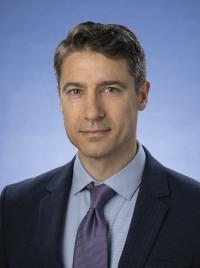Liquid Biopsy: Innovations in liquid biopsy technologies are enabling cancer to be detected and monitored with a simple blood test. The Bratman Lab is inventing new liquid biopsy approaches with a strong focus on circulating cell-free DNA. This research could revolutionize cancer care through earlier detection and more personalized treatments.
Extracellular DNA: Cell-free (extracellular) DNA can be a useful biomarker for cancer. Moreover, emerging evidence suggests that extracellular DNA may have roles in cancer progression. The Bratman Lab is studying the molecular composition and biophysical properties of extracellular DNA complexes in order to improve their use for cancer diagnostics and therapy.
Radiogenomics: Radiotherapy is a backbone of curative treatment regimens for many cancer types. Current aggressive treatments are often successful at curing patients but carry significant toxicity risks. The Bratman Lab is evaluating new genome-informed radiosensitizing strategies with the goal of improving cure rates for patients treated with radiotherapy.
Head and Neck Cancer: HNC is a heterogeneous group of malignancies with distinct etiologies, epidemiologies, molecular features, and clinical behaviors. We strive to improve cancer therapy for HNC by maximizing cures while minimizing toxicity. Our research is uncovering the hallmarks of HNC and determinants of cancer progression through integrative analysis of genomic and epigenomic data from tumour tissue and liquid biopsies.





 https://orcid.org/0000-0001-8610-4908
https://orcid.org/0000-0001-8610-4908